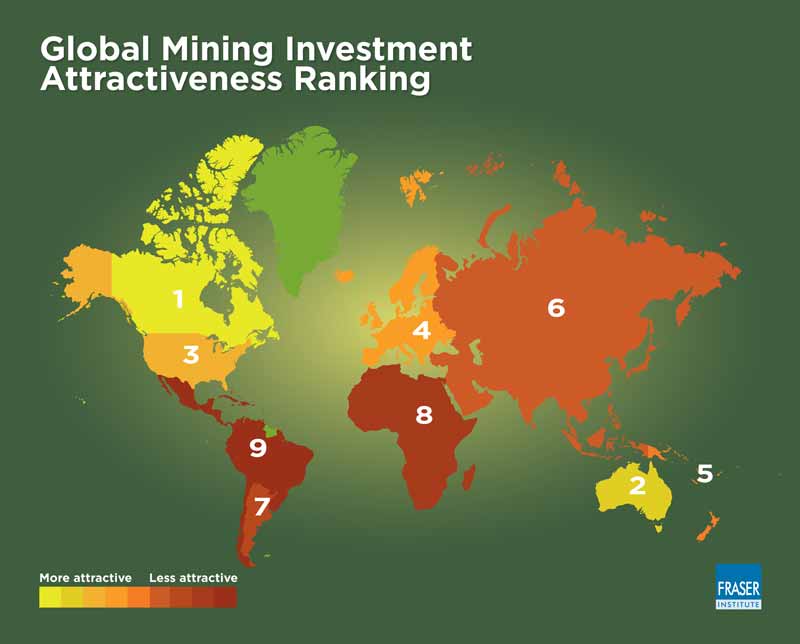Australia is losing its popularity as a mining destination among explorers

Pic: Bloomberg Creative / Bloomberg Creative Photos via Getty Images
Australia’s attractiveness to explorers is diminishing, according to a Canadian public policy think tank.
A survey that is carried out every year by the Fraser Institute has seen Australia drop down the Investment Attractiveness Index.
Jurisdictions are ranked on their geologic attractiveness and government policy. The Fraser Institute received 360 responses from the 2700 surveys it sent out and was able to rank 91 jurisdictions.
Western Australia, the biggest mining State, slumped to 5th place in 2017, from 3rd in 2016 and top spot in 2015.
South Australia slipped back one spot to 14th, Queensland fell to 12th, and the Northern Territory fell seven places to 27th. Victoria dropped 14 places to 71st.
On the flipside, New South Wales rose to 46th and Tasmania improved to 50th.
As a whole, Australia — which ranked as the most attractive region overall in 2016 — has fallen to 2nd in 2017 after Canada.

Western Australia has been outdone by Finland, which moved to 1st place from 5th place in 2016, Canada’s Saskatchewan in second place, Nevada in third place and Ireland in fourth place.
Rounding out the top 10 were Quebec, Ontario, Chile, Arizona, and Alaska.
What’s Australia’s problem?
In Australia, every jurisdiction received lower scores on policy this year, indicating increasingly unattractive government regulations across the country.
“The Fraser Institute Survey results reflect increased red tape, proposed royalty increases and regulatory uncertainty across Australia,” said Warren Pearce, the head of industry body Association of Mining and Exploration Companies (AMEC) chief.
“The geology has not changed, but government are damaging our investment attractiveness.”
The survey highlights that Australia’s mining and mineral exploration industry is not immune to the negative impact of regulatory and public policy uncertainty, Mr Pearce noted.
“Ultimately, if processes are duplicative, costly and slow, companies will invest in competing jurisdictions.”
AMEC has been advocating for regulatory reform to encourage greater mineral exploration and mining in Australia.
- Bookmark this link for small cap breaking news
- Discuss small cap news in our Facebook group
- Follow us on Facebook or Twitter
- Subscribe to our daily newsletter
The organisation is pushing for a new exploration tax credit, which has been tabled and passed through the House of Representatives but is yet to pass the Senate.
The Junior Mineral Exploration Tax Credit would allow explorers with no mining income to renounce and pass on future tax deductions to Australian resident investors.
The first year of the $100 million four-year commitment was supposed to be the 2018 financial year, of which there is only a few months left.
Ugly duckling
Guatemala has replaced the Argentinian province of Jujuy as the least attractive jurisdiction in the world.
Also in the bottom 10 (starting with the worst) are Kenya, Mendoza, Chubut, Mozambique, Bolivia, Venezuela, Romania, China, and Nicaragua.
UNLOCK INSIGHTS
Discover the untold stories of emerging ASX stocks.
Daily news and expert analysis, it's free to subscribe.
By proceeding, you confirm you understand that we handle personal information in accordance with our Privacy Policy.








